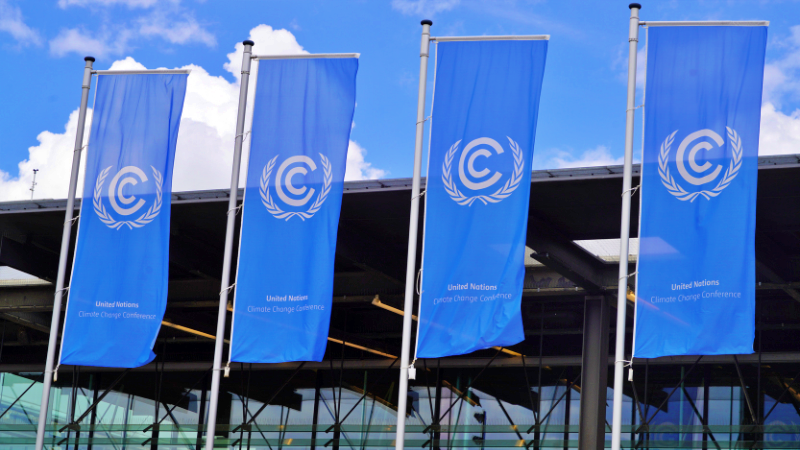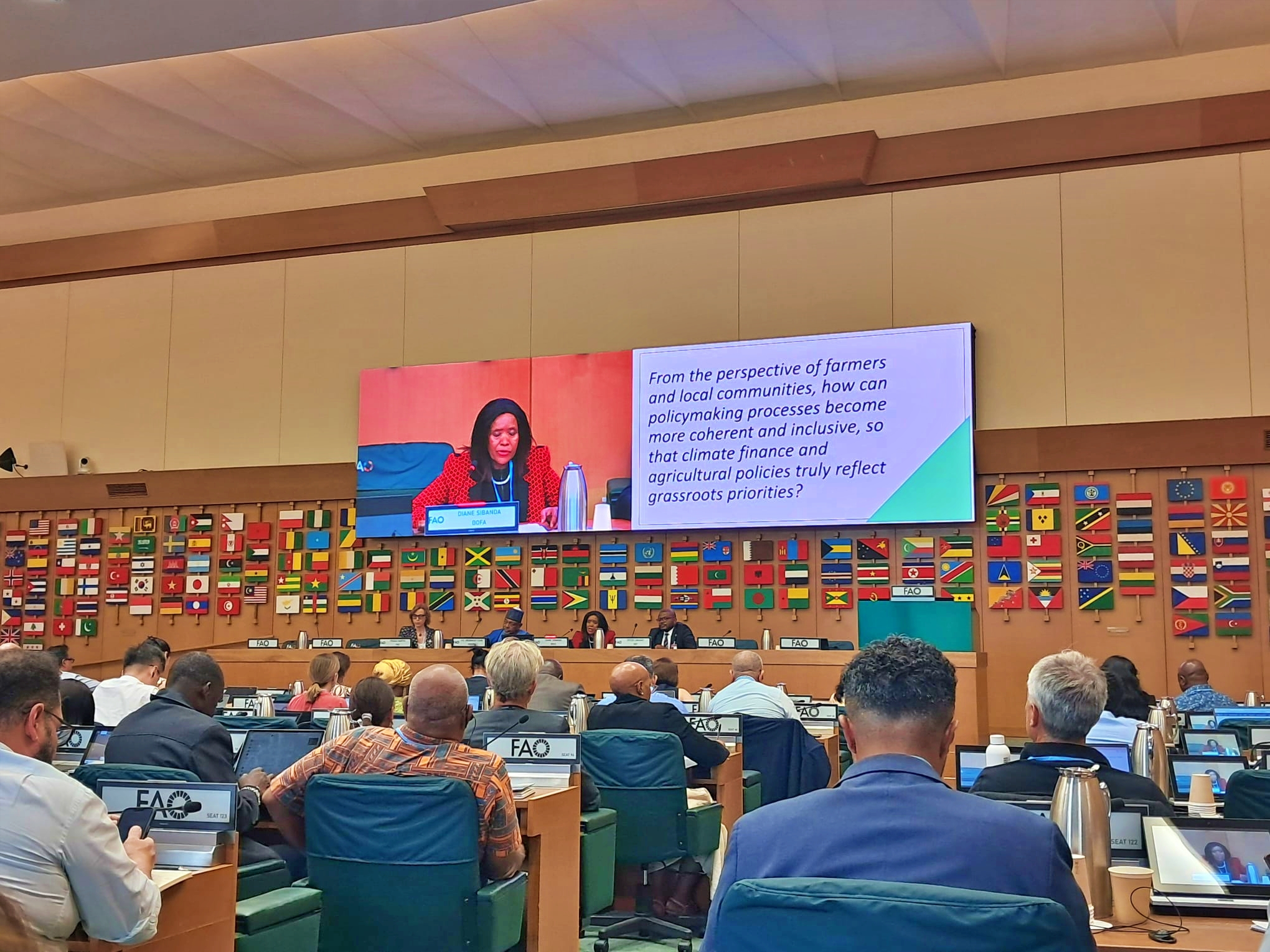Farmers’ Voice Rings Strong at UNFCCC Standing Committee on Finance Forum in Rome
Rome, 8 September 2025: The 2025 Standing Committee on Finance (SCF) Forum of the United Nations Framework Convention on Climate Change (UNFCCC) opened this week at FAO Headquarters in Rome, placing agrifood systems at the center of global climate finance discussions for the first time since the Forum’s establishment at COP 17 in 2011.
Held under the theme “Accelerating Climate Action and Resilience through Financing for Sustainable Food Systems and Agriculture,” the Forum comes at a decisive moment in the lead-up to COP30 in Brazil, where countries are working towards mobilizing US$1.3 trillion in climate finance.
Speaking on behalf Eastern and Southern Africa Small Scale Farmers Forum (ESAFF) and Botswana Farmers Association (BOFA), a member of the World Farmers’ Organisation (WFO), Diane Sibanda highlighted the persistent barriers that prevent farmers from accessing much-needed climate finance. She noted that limited grassroots consultation in policy design, weak accountability on how funds reach communities, fragmented policies and complex mechanisms often leave smallholder producers behind.
Sibanda stressed that inclusion is non-negotiable. Smallholder farmers contribute about one-third of the world’s food, yet 95 percent of Africa’s food production depends on rainfed agriculture, leaving it highly vulnerable to climate shocks. At the same time, agriculture remains the single largest employer of young people in Sub-Saharan Africa, accounting for 60 percent of youth employment as of 2021. For these reasons, she called for climate finance to directly support farmers’ organizations and cooperatives, ensure farmers’ representation in policy platforms, strengthen grassroots capacity in financial literacy and project management, and recognize agroecology, Indigenous knowledge, and traditional practices as valid climate solutions.
The Forum also marked the global launch of the Food Systems Integrated Programme (FSIP), a flagship initiative of the Global Environment Facility co-led by FAO and IFAD. With US$282 million in GEF grants, the programme aims to transform agrifood systems in 32 countries, restore over 870,000 hectares of degraded land, improve practices across 13.8 million hectares, mitigate 174 million tons of greenhouse gas emissions, and support 3.4 million people to improve their livelihoods.
FAO Director-General QU Dongyu underscored the urgency of channeling climate finance to those on the frontline of climate change. “To beat the climate crisis, we need agrifood systems to move faster towards efficiency, inclusivity, resilience, and sustainability. And we need climate finance to flow to farmers,” he told delegates.
The Rome Forum has brought together smallholder farmers, ministers, governments and international partners to explore how climate finance can unlock opportunities for sustainable food systems and resilient livelihoods. As the world prepares for COP30, the message from farmers is clear: climate finance must move beyond pledges and policies to deliver real impact where it matters most in the fields, communities and lives of those who grow the world’s food.
























